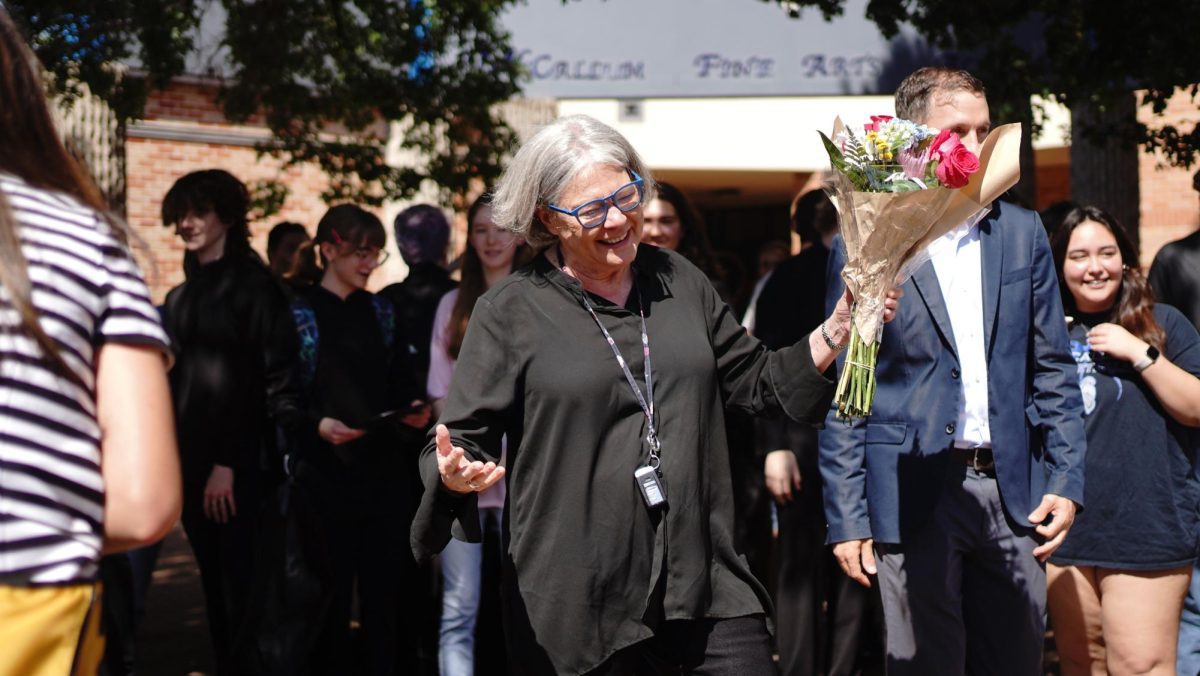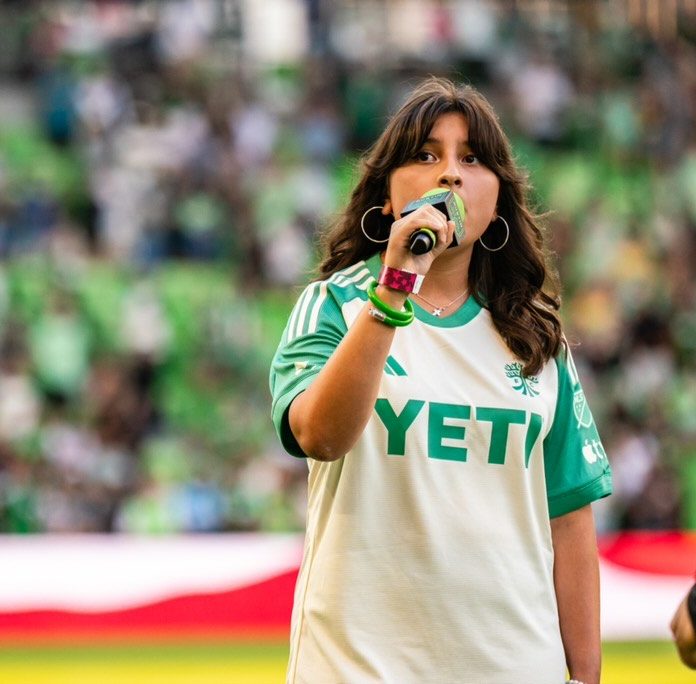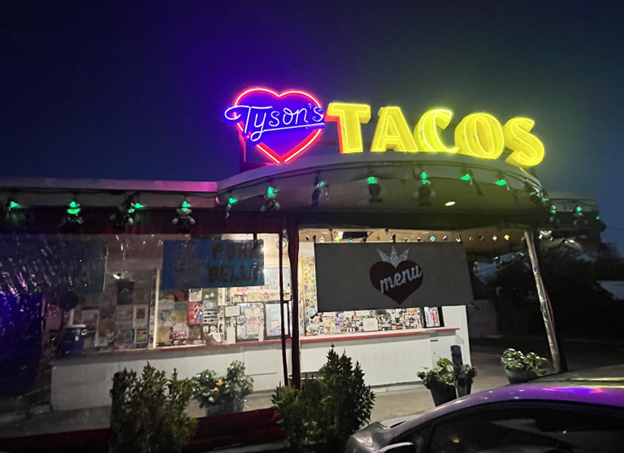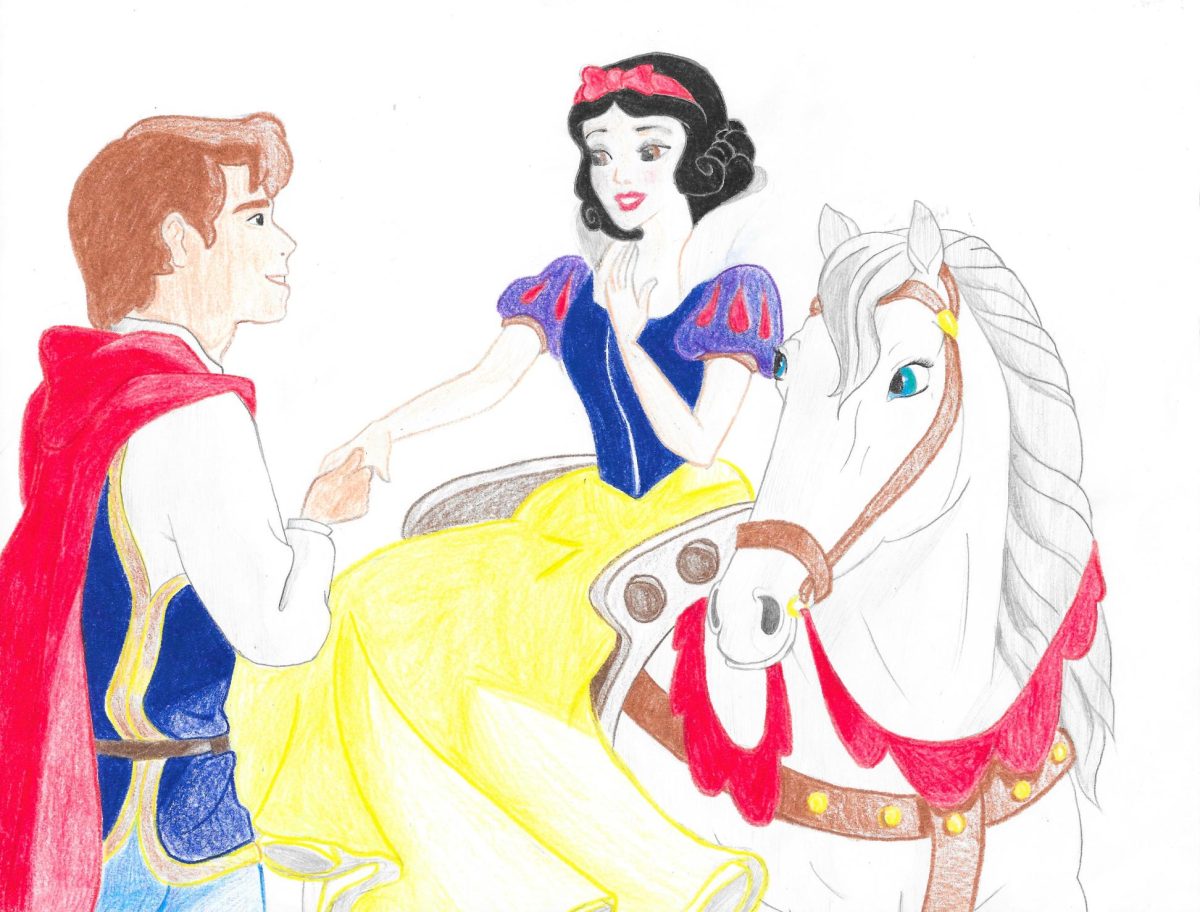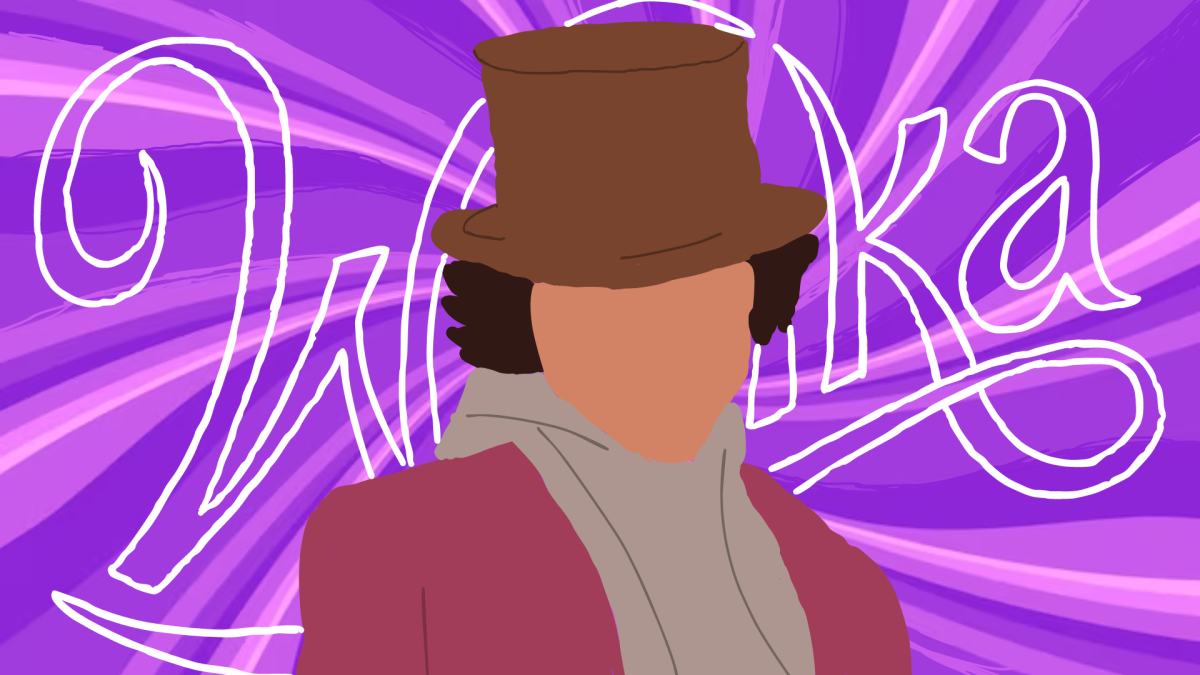
Two years after its announcement, Wonka was released to theaters on Dec. 15 and is expected to be released on Max by March. Initially, the public was confused as there have already been two film interpretations of the Willy Wonka story. But Wonka sets itself apart as a prequel to Willy Wonka and the Chocolate Factory (1971), showing the character’s development from youth and how he managed to become a successful chocolate businessman.
Many viewers had low expectations for Wonka, but those expectations were quickly flipped around as critics praised the film. Indeed, Wonka is a near perfect film, from the beautiful soundtrack to the outstanding performance of Timothée Chalamet and the eye-catching set design.
In this film, a young Willy Wonka (played by Chalamet) arrives in England with dreams of having his chocolate tasted and admired. Shortly after he arrives, he meets Mrs. Scrubbit (played by Olivia Colmon), an innkeeper who scams Wonka into a lifelong contract working for her. Here, he befriends a girl named Noodle (played by Calah Lane), and they team up to escape Mrs. Scrubbit and sell as much Wonka chocolate as they can. Along the way, they have to beat Arthur Slugworth (played by Paterson Joseph), who runs a successful chocolate shop, and outdo his schemes to eliminate Wonka.
There was no better actor for the role of Willy Wonka than Chalamet. Despite Chalamet’s dark and sad role in Dune, he played the role of Willy Wonka perfectly. Through his mannerisms, wittiness and sense of humor, he simultaneously captured and reimagined Gene Wilder’s interpretation of Willy Wonka. Surprisingly, Chalamet sang multiple times during the film, and for this being his first singing role, he did a stellar job. It should not come as a surprise if he gets offered another musical role. His voice was beautiful and satisfying to hear; he was able to hit all the notes and his voice fit the youthful feeling the production was aiming to achieve.
Calah Lane also did a wonderful job, but she is not getting enough critical recognition. In the beginning, her character Noodle is silent and sad, but after befriending Wonka, she learns to be more open and confident in herself. Lane and Chalamet have adorable chemistry that was reminiscent of a sibling bond. Viewers’ hearts were captivated by the scene where Noodle is teaching Willy Wonka the alphabet and how to pronounce certain words, and it is revealed that he never learned to read because he was so invested in learning how to make chocolate.
Something that is rarely appreciated in films is soundtracks and scores, but Wonka’s soundtrack definitely deserves praise and attention. There is rarely a second of silence in this film, but that is far from a bad thing. The music that is heard in every scene is joyful and entertaining to listen to and keeps the audience engaged. Chalamet’s beautiful vocal performance isn’t the only thing that makes the songs entertaining– also the lyrics. Not a single song is unnecessary to the story, and each song is emotional, and memorable and in a way transports you into the scene. The choreography is also exceptionally incredible and entertaining, with the best being the opening number, when Wonka imagines a huge party to celebrate the opening of his shop.
The little town where Willy Wonka first arrives is very well-designed and easy on the eyes. From the first shot of this film, it’s easy to tell that the production team dedicated their time to perfectly depicting a small town in England in the early 1940s, from the wardrobe for the background and main characters to the silver coin exchange and the words and phrases that the characters said throughout the film. But the set that was the most eye-catching was Wonka’s candy store. It wasn’t easy to look away when this scene came on because it looked like a 5-year-old’s dream come to life, going beyond anyone’s imagination. There were so many vibrant and beautiful colors and unimaginable chocolate surprises, and the scene seemed even more like a dream come true with Chalamet’s musical performance and all the people excited to try his chocolate creations.
What truly sets this film apart from the other versions of Willy Wonka movies is the screenplay. The story itself stands on its two feet and is full of heart and adventures that will have you at the edge of your seat. Throughout the film, more secrets and surprises are slowly revealed that no one could have imagined or seen coming. What the story manages to accomplish well is adding a meaningful lesson. From beginning to the end we see Wonka working endlessly to create as many treats as possible, and he even goes as far as sneaking into a zoo with Noodle to get giraffe milk. During this scene, he and Noodle have a discussion about dreams and whether dreams are possible to accomplish or if they are just our imagination. During the musical number “For a Moment,” Noodle is hesitant to believe her dream can come true, Wonka manages to switch her thinking around by singing to her about not giving up and savoring the little things in life. With scenes like these, Wonka gracefully manages to teach the audience that every good thing in life begins with hopes and dreams.
Overall, Wonka is a wonderful treat for any viewer who is interested in musicals and is a fan of Chalamet’s work. Wonka is a film that is different and unique, but it is also proof that Hollywood can do prequels well if the right amount of care is put into the story and characters.


